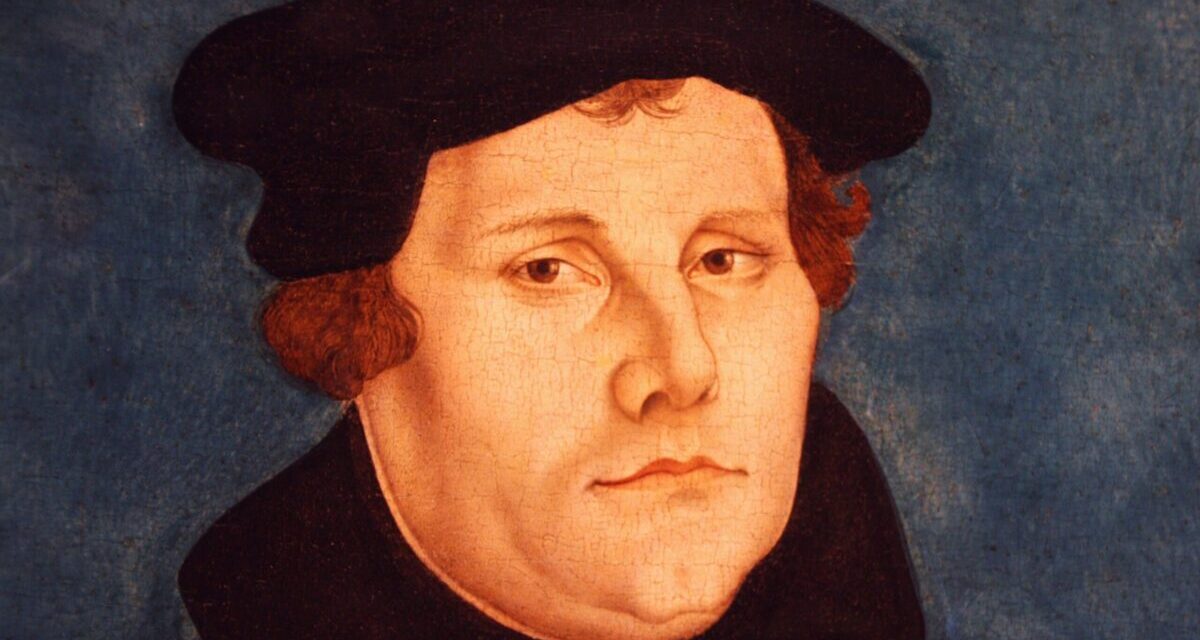Luther wanted to repair and reform the church from the inside, which, instead of thinking more thoroughly about the proposals included in the 95 points, rather rigidly withdrew from his doctrines, declaring them heresy.
Today is the Memorial Day of the Reformation, as it was on this day in 1517 that Márton Luther posted his 95 theses on the door of the Wittenberg Castle Church, which then started the movement aimed at renewing Christianity.
It has been a long road to the point where the Memorial Day of the Reformation is celebrated on October 31 everywhere in the world.
At first, the birthday of Martin Luther on November 10, who started the movement aimed at reforming Christianity, and his heavenly birthday on February 18, i.e. the date of his death, were considered significant days, but the date of the official reading of the Augustan Creed on June 25 was also a privileged day. among his followers. In the end, the question was decided, and October 31 became the famous day.
But what happened on this day, which is why, on the 150th anniversary of the publication of the Lutheran 95 points, II. Did the Saxon Elector György János and the General Council of the Lutheran Church in Saxony, which he led, decide to celebrate it in 1667?
Márton Luther originally did not want to break away from Rome, the center of the Christian world at the time. That is not why he posted his famous theorems on the door of the castle church in Wittenberg. Luther wanted to repair and reform the church from the inside, which, instead of thinking more thoroughly about the proposals included in the 95 points, rather rigidly withdrew from his doctrines, declaring them heresy.
Born on November 10, 1483 with the name Martin Luder, he wanted to be a reforming lawyer, but in the summer of 1505 he was caught in a storm near Stotternheim and vowed that if he returned home safely, he would become a monk. He kept his promise, thus becoming first an Augustinian monk, and then two years later an ordained Catholic priest, who shortly afterwards was rightly outraged by the corruption, worldliness, greed, lust for money and lust for power that prevailed within the church at that time.
And he considered the goodbye cards to be a downright scandal.
At that time, the Catholic Church forgave the sins of all those who bought farewell tickets for money. The papal court thus turned the question of salvation into a profitable business. The amount raised in this way migrated to Rome, where Pope Leo X spent it on the construction of the largest Catholic church in the world at the time, that is, St. Peter's Basilica.
However, Luther believed that not a single worldly note bought with money could provide an exemption from the punishment of the sin committed in the other world. Not even if the money is used to build a basilica in Rome.
This is what he wrote among his famous 95 items about farewell notes: "They promote human folly when they say that as soon as the money thrown into the chest rings, the soul immediately goes to heaven." And in his writing "Organization of a church treasury" published in 1523, he put it like this: "Greed is an unbelieving and disobedient cop."
According to the main idea of his propositions, a person is not justified because he believes, but is justified by believing. Salvation therefore does not depend on free will, but on divine grace. According to Luther, this is a question of ordination, which the Augustinian monk further thought about based on the works of his great role model, Saint Augustine. Furthermore, he also emphasized that no one, not even the Pope of Rome, can undertake to forgive sins, since it is only God's privilege. And you don't need an intermediary for this.
The Pope rejected Luther's views.
In the bull Exsurge Domine, on June 15, 1520, Pope Leo X ordered to withdraw half of the 95 points posted on the door of the castle church in Wittenberg within sixty days, i.e. the 41 points that the clergy classified as faulty.
The bull was also announced in several German cities.
Luther refused to obey and was publicly burned on the main square of Wittenberg on December 10. After that, Pope Leo excommunicated him from the church on January 3, 1521 and asked the German-Roman Emperor Charles V to take decisive steps to suppress the heretical Lutheran doctrines.
By burning the bull, Luther publicly broke with Rome.
In response, at the Imperial Assembly in Worms in 1521, Emperor Charles V imposed an imperial curse on him and outlawed him, according to which anyone, anywhere, at any time, could kill him with impunity. However, Elector Frederick the Wise of Saxony offered him protection in Wartburg Castle, as if neglecting the order of the imperial center. Not only Frigyes Bölcs acted against this, the majority of the German provincial lords also thought so.
Thanks to the princes fighting to maintain their independence, as well as the nobility and the urban bourgeoisie, who viewed the enormous wealth of the Catholic Church with a bad eye, huge crowds joined Luther in a few years, and the new church that declared itself reformed, the Lutheran, Augustinian evangelical denomination in Hungarian, came to life. , about which Sándor Reményik wrote in his poem The Giant: "He beats God - and God lives!" / It beats the truth – and the idea lives on. / Faith beats – and it never dies.”
Cover image: Márton Luther
Source: Wikipedia/Workshop of Lucas Cranach













